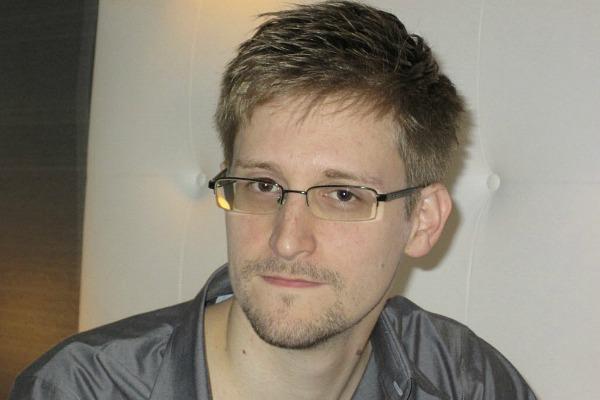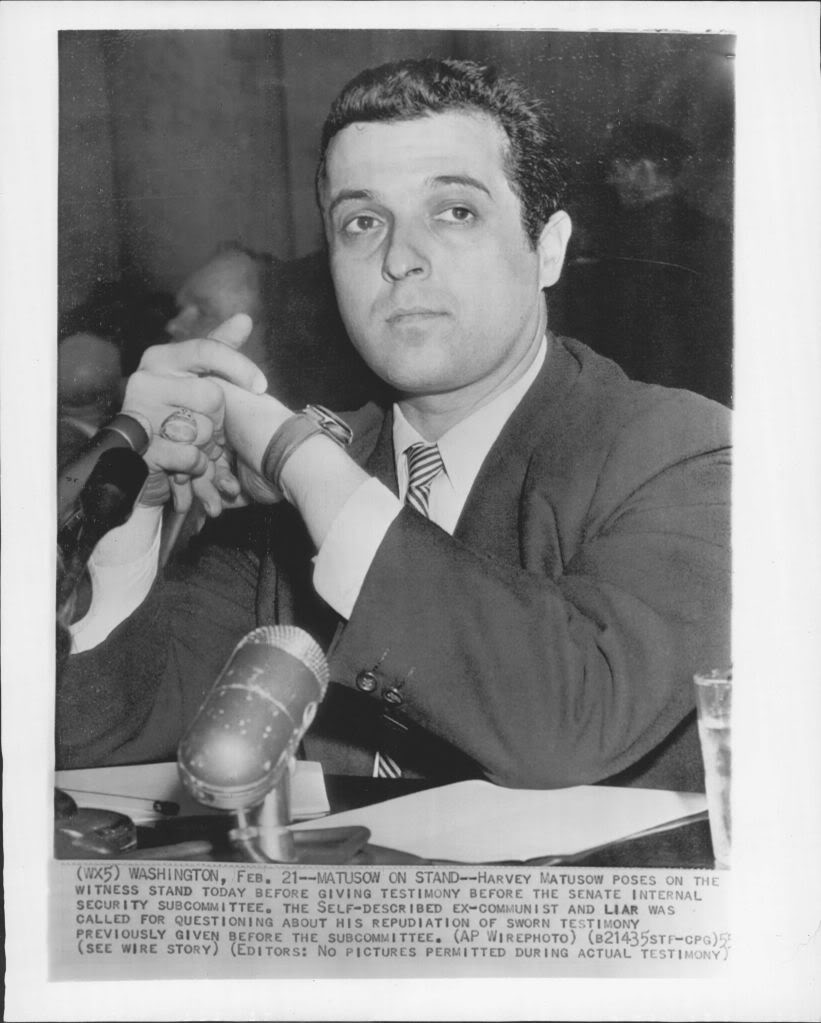Snitches and Whistleblowers: Who would you rather be?
Who would you rather be?
Or this guy?
The twentieth century was the century of Matusow, Kazan, and other assorted informers, informants, and snitches, behind the Iron Curtain, in Nazi Germany, in Latin America, in the United States. Everywhere.
Let the 21st be the century of Snowden, Manning, and more.
12 Comments
-
mindweapon June 10, 2013 at 10:59 am | #
White House petition to pardon Edward Snowden:
https://petitions.whitehouse.gov/petition/pardon-edward-snowden/Dp03vGYD
-
Malcolm Schosha June 10, 2013 at 1:56 pm | #
Are there any other choices?
-
BarryB June 10, 2013 at 11:14 pm | #
Not to make Corey’s point–if you’re going to snitch, you either snitch to implicitly play into the government for favors, or you snitch to the media to make public what the government is secretly doing behind their back.
-
Malcolm Schosha June 11, 2013 at 7:22 am | #
Its not that I have an admiration for people like Whittaker Chambers. My concern is different. When, for instance, Bradley Manning became a whistleblower there were actual documents involved. But with Snowden all I see is the personal testimony of a man we know nothing about. What he said may be absolutely true, but too many people have assumed that too quickly and without any way to confirm.
-
Blinkenlights der Gutenberg June 13, 2013 at 1:18 am | #
Malcom, you don’t know what you’re talking about.
Snowden released classified documents to the Washington Post and to the Guardian. In particular, he leaked a power point presentation about the PRISM program, clearly marked TOP SECRET. Those slides remain available on the Washington Post web site:
http://www.washingtonpost.com/wp-srv/special/politics/prism-collection-documents/
By the way, isn’t it interesting that nobody is criticizing the Washington Post for running the story? At least, I have not seen it.
-
Malcolm Schosha June 13, 2013 at 7:26 am | #
According to the Wikipedia article about Bradley Manning, the material he released included “…videos of the July 12, 2007 Baghdad airstrike and the 2009 Granai airstrike in Afghanistan; 250,000 United States diplomatic cables; and 500,000 army reports that came to be known as the Iraq War logs and Afghan War logs.” The veracity of those documents, and in that quantity, seems incontrovertible.
On the other hand Snowden’s document, that you describe as a “…power point presentation about the PRISM program, clearly marked TOP SECRET” could be produced by anyone with a graphics program.
That is not to say Snowden is not telling the truth, but I would like to know more before I form a judgment.
-
-
-
-
-
Glenn June 11, 2013 at 1:45 am | #
When Elia Kazan was recognized with a lifetime achievement award I felt the popular culture took a decidedly perverse turn toward a new acceptance of degeneracy.
-
jonst June 11, 2013 at 10:44 am | #
I don’t see it the way Robin does. I see it more like a solider refusing an unlawful order. The person, Snowden, in this case, maybe wrong, but lets say he starts to believe he is working for a criminal organization. He would not be ‘snitchin’ on them, in exposing them.
And I liked Kazan….liked his biography. Did not agree with what he did….HE did not always agree with all that he did….but he had an interesting take on it…and he did not run away from his critics. He looked em right in face and said, ‘hey, I think I did the right thing’.
And I’ll even give a good word to Matusow….for as despicable as his act was–and I differentiate what he did v. what Kazan did…Matusow did found the International Society for the Abolition of Data Processing Machines….LOL, a man with foresight, if not an ounce of dignity.
-
BarryB June 12, 2013 at 12:25 pm | #
Malcolm, the spying revelations that have Snowden has made have been truthful enough to call for him to be extradited, and put away for life by some members of Congress. You usually don’t get that kind of response if you’ve only put out garbage. And the government hasn’t denied any of his claims. So, no: we don’t just have his personal testimony, meaning his word, but a government that hasn’t denied a thing he’s said, and some on the inside who are calling him a traitor for revealing so much.
Once again, it comes back to Corey’s piece about if you’re going to snitch, what kind of snitch you’d prefer to be. The kind that does it to aid obfuscation and outright lying in upper levels of government, or the kind that chooses to reveal operations of government that are nearly merely lacking in transparency, but appear (at least on the surface; I’m no Constitutional lawyer, like our president) to be thoroughly unconstitutional.
-
Malcolm Schosha June 12, 2013 at 4:41 pm | #
“Malcolm, the spying revelations that have Snowden has made have been truthful enough to call for him to be extradited”
As far as I know, there has not yet been an extradition request from the US government.
I do not feel particularly comfortable with snitching, or snitches.
I do believe in ‘speaking truth to power’, which was known in Greek and Roman philosophy as parrhesia. If indeed that proves to be what Snowden has done, then I respect his courage and honesty in coming forward and speaking out for an ethical reason. I will form a judgment when I know more.
Michel Foucault gave an interesting series of lectures at UC Berkeley on speaking truth to power not long before his too early death. The text of the lectures is available online as ‘Discourse and Truth: the Problematization of Parrhesia’.
-
BarryB June 13, 2013 at 4:08 pm | #
Bringing up parhesia, which is certainly well known by one and all in this crowd (at least), is a red herring–if not a Greco-Roman one. It isn’t important whether Snowden is a hero. It is important whether the content he provided is accurate, because if it is, then he is, however pejorative the term, a snitch. And that’s the point. Whether it is better to snitch to gain benefits, or to help reveal something that is detrimental to one’s society. And for the sake of any or all gods you (or I) believe holy, please let’s leave Foucault out of this.
I’m personally uncomfortable with the notion of hierarchies of power built upon bribes and blackmail, but that’s the price you pay from moving out of a small Ga village into a Greek city-state, then into the latterday Duchy of Burgundy and finally into a full grown modern nation that holds together (for better, and for worse) many, many cultures through tradition and the quiet threat of force. With some reservations, the larger the society, the less input the individual has into the development of government procedure, and the establishment and maintenance of policies. The model of the Northeastern US townhall long ago broke down. And if it isn’t going to work, and things go awry–as they usually do, sometimes on a massive scale–we need whistleblowers, or as Corey put it for the sake of irony and comparison, snitches, to go where we can’t, and reveal what we can’t.
This doesn’t make them heroes, but then, that wasn’t his point. It was whether it’s better to snitch for Caesar, or to snitch about what goes on beyond when Roman Senators plot and plan out of view. Which do you think best? Which would you be more comfortable with, personally?
-
-

